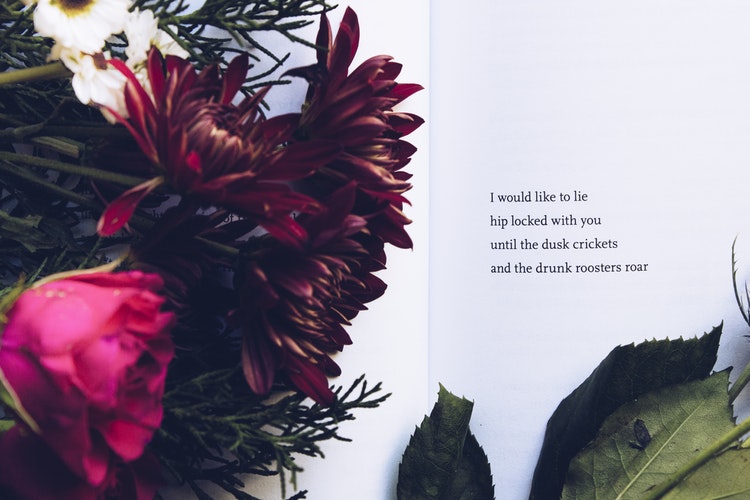
When Fumio Sasaki’s book ‘Goodbye, Things’ became a best seller in the United States, it attracted the people’s attention towards living a minimalist life and decluttering their living spaces.
In a time, when we are cluttering ourselves with the constant stream of data, exposing ourselves to a large array of information, how can we look for the inspiration to believe that the less is more?
Art of decluttering, tidying up or arranging is not just limited to the material things but also encompasses how we express ourselves through the words. Where people like Sasaki and Marie Kondo show us how the aesthetics of a living space can be enhanced by going minimal, poets like Rumi, Machi Twara and Rupi Kaur show us how the aesthetics of a creative expression like Poetry can be enhanced with the economy of words. In other words, they make us believe that the less is more.
The Poetic works such as Haiku and Tanka not only inspire us to believe in the power of economical expressions but also leave us with wonder and the mystery that they contain.
Rumi, a celebrated Sufi Poet and Mystic, who experimented with the short poetic form called quatrains, not only contemplated about love but also gave new dimensions to the idea of love in his poetic creations. Rumi, in the following piece of his Poetry, exercises the power of words in a very economical way and expresses his idea about a lover;
Let the lover be disgraceful, crazy,
absent minded. Someone sober
will worry about things going badly.
Let the lover be.
No wonder that the conciseness of Rumi’s words leave us with the admiration for the beauty and wisdom that these words contain.
If one form of Poetry which has been celebrated for its economy, is the Japanese style of Haiku. A very short form of poetry with three lines, this form is highly metaphorical and a sort of meditation in concise creative expression. Here is one of the Haikus of Japanese Poet Ishu, showing his concern over the fragility of the Cherry blossom;
Hey there, wait a moment
Before you strike the temple bell
At the cherry blossoms.
Another Haiku by Poetess Kaga Na Chio, expressing her loneliness;
I sleep, I awake
How wide,
The bed with none beside.
It’s surprising to observe that how Chio chooses just few words to express one of the deep emotions like loneliness.
Tanka, often hailed as the cousin of Haiku, is an another style of Japanese Poetry which tries to retain the economy of words thereby conveying a wide array of emotions and ideas with just few words. Here is one of the Tanka poems of celebrated Japanese Poetess Machi Twara;
Freezing my smile
for half a second
I look
toward your camera
that can’t photograph my heart.
It is poignant to note how Twara expresses her deep emotions with just few words and leaves readers to comprehend further.
Rupi Kaur, an Instagram sensation and a feminist poet who opted for short forms of poetry for giving shape to her powerful emotions and ideas on love and belonging, writes;
You must
want to spend
the rest of your life
with yourself
first.
In just few words, Rupi expressed the necessity and importance of accepting ourselves first in order to form better relationships with others.
The emotions and ideas contained in the above poetic expressions are not less powerful and poignant than those contained in the long forms of poetry or intellectual prose, and they do the same magic beside enhancing the aesthetics of the form and leave us with wonder and joy.
These short forms of Poetry make us believe in the power of going minimal. So, look no further and dive deep into some of the works of these poets to get enchanted by the power of small.

